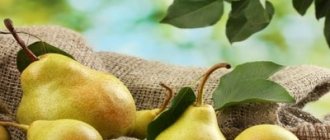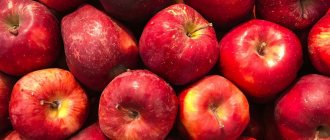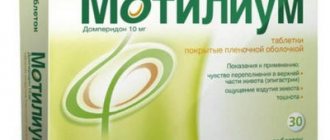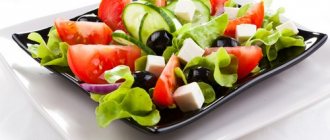- June 28, 2018
- Gastroenterology
- Yulia Obolenskaya
Today, one of the most common diseases is inflammation of the gastric mucosa - gastritis. The fast pace of life, lack of time to prepare healthy food, and, as a way out, snacking on the go, fast food - all this leads to stomach disease.
When the mucous membrane is inflamed, food is poorly digested. As a result, we have discomfort after eating, indigestion, nausea and pain. The threat of this disease is that its chronic form can develop into a peptic ulcer.
Is salad healthy?
It is often believed that fresh vegetables are only beneficial. And there simply cannot be any harm from them. And in warm weather, preference is given to salads made from cucumbers and tomatoes. Although even for a healthy person such a dish is not healthy. These two vegetables do not get along on the same plate, or rather, they cause harm to the gastrointestinal tract. After all, tomatoes by nature have an acidic environment, but cucumbers, on the contrary, are alkaline. And when they enter the stomach together, a reaction begins. The result is excess salt. This means that damage to the kidneys and liver will be caused.
Recipes for acute gastritis
Creamy milky rice soup
Ingredients:
- Boiled rice - half a glass (about 0.5);
- Low-fat milk (1.5-2.5%);
- One egg yolk;
- Vegetable broth (any kind will do, as it all depends on your preference).
Procedure:
- Cook the rice. Then press it through a sieve into the pan.
- Add milk and broth to rice.
- Place on low heat (if the stove is gas, if electric - no more than 5-6 units out of 10).
- Bring to a boil, simultaneously removing the film that forms during the cooking process.
- After everything is cooked, remove the pan from the stove and cover it with a lid. Let the resulting dish sit (about a quarter of an hour).
Kissel
Ingredients:
- 3 Liters of water;
- 300g Sugar;
- 100g Starch;
- 500g Sweet berries.
Procedure:
Gastritis and diet
Gastritis can be treated for quite a long time with medications and diet. And in the heat, I really want a light, summer salad. How hard it is to pass by a ripe, red, juicy tomato or green, crispy cucumber! Here, the consumption of vegetables depends on what stage the disease is at. After all, first of all, vegetables are a direct delivery of beneficial vitamins and minerals to the body. They are simply necessary for a person. When purchasing, it is important to know whether these vegetables have been processed with harmful concentrates. You will hardly find out about this in the store. Therefore, it is better to buy cucumbers and tomatoes from trusted sellers or grow them yourself. After all, they can be easily grown in an apartment on the balcony. You don't have to have a summer house for this. There are many recommendations for growing these vegetables at home. Although the harvest will not be so large in size. But it will certainly be safe.
Is it possible to eat cucumbers for gastritis?
Cucumbers are a dietary vegetable, the use of which helps cleanse the body of many harmful substances. Their use for diseases of the gastrointestinal tract, despite all the benefits, should be kept to a minimum. All green vegetables promote increased production of gastric juice, which negatively affects the course of this disease.
Therefore, eating fresh cucumbers is not recommended for gastritis - this can lead to heartburn. You can eat this vegetable only during remission; you can eat up to 300 grams of peeled fruits per day. If gastritis is exacerbated, you cannot eat cucumbers.
Only a doctor can accurately determine whether or not to eat cucumbers during gastritis. The menu for each patient is compiled individually, it varies depending on the presence of other diseases of the digestive organs: pancreatitis, gallstone disease, stomach ulcers and duodenum, liver diseases.
The most useful fruits are those that ripen in the summer. In spring, cucumber grows in greenhouse conditions with a large amount of fertilizers, its consumption can lead to food poisoning. Small fruits are the most useful, as they have the maximum amount of vitamins.
You can eat fresh cucumbers in salads - this is the best option for consuming them without processing. To reduce the negative impact on the stomach, these vegetables can be stewed or baked. But, like tomatoes, pickled or canned cucumbers are prohibited during gastritis due to the addition of a large amount of spices.
Tomatoes. Their benefits and harms for gastritis
Tomatoes are rich in vitamins, minerals, fiber, glucose, acids and antioxidants. Therefore, eating this vegetable is important for the body, for its proper functioning. Tomatoes have a positive effect on the eyes, skin, bones, and kidneys. Helps remove accumulated toxins from the body. Clears cholesterol and toxins. Helps the functioning of the gastrointestinal tract, promotes the secretion of gastric juice. They improve digestion and reduce intestinal inflammation. The best time to eat tomatoes is during the day. Tomatoes eaten in the morning or evening may cause more harm because they activate the stomach and may even cause heartburn. Experts allow eating such a healthy vegetable even with gastritis. But you need to follow a number of rules:
- The daily portion should be no more than 300 grams. If there is a slight exacerbation, then no more than 100.
- The tomatoes should be ripe and sweet (sour ones will increase acidity).
- The peel is completely removed from the tomato, as fiber complicates the digestion of food. And it puts more work on the damaged stomach.
- It is better to season salads with light sauces prepared independently and with oil. They are mainly used as an addition to the second course. And on their own, they can provoke gas formation, heartburn, and belching.
- Under no circumstances should you eat canned tomatoes. They irritate the stomach and increase the concentration of salt in the body. Tomato sauces (lecho, pasta, ketchup) are also prohibited.
In case of severe exacerbation, tomatoes are completely excluded from the diet. After your condition improves, you can start eating tomatoes in very small portions. First you need to check the body's reaction. If there are no side effects, the portion can be gradually increased to 300 grams. And you definitely need to check the quality of the tomato. The tomato must be: not rotten, not unripe, preferably from its own garden.
Contraindications
Cucumber is not included in the diet in the presence of inflammation of the gastric walls, exacerbation of gastric and duodenal ulcers, acute and chronic gastritis.
Salted and pickled cucumbers are prohibited from being included in the treatment menu for severe gastrointestinal diseases; these products activate the production of hydrochloric acid and damage the protective lining of the stomach and other digestive organs. Salted vegetables should not be regularly consumed by patients with stomach or intestinal ulcers: they contain sodium, which neutralizes the beneficial properties of cucumbers.
Before eating, cucumbers can be prepared by baking or stewing: this way the vegetables retain their beneficial properties. The amount of product consumed should not exceed 200 g per day. Cucumbers are used to prepare vegetable salads, main courses and even soups.
Fresh cucumbers
Is it possible to eat fresh cucumbers for gastritis? How are they useful for this disease? How much vegetables can you eat? More on this later in the article.
There are people who believe that fresh cucumbers have much less effect on the functioning of the stomach for gastritis. And they turn out to be completely wrong. Cucumbers are much more irritating to the stomach. And they contain much less vitamins and nutrients than tomatoes. Of the total mass of the vegetable, they make up only 5%, the rest is water. Cucumber contains: carbohydrates, proteins, fiber, enzymes for the breakdown of proteins, vitamins (A, B, PP, E), minerals (potassium, calcium, phosphorus, iron, manganese, zinc, copper). For a healthy body, cucumber is an excellent dietary product (since it is mostly water). It improves intestinal motility, helps with constipation, removes kidney stones, cleanses the body of toxins and waste, fights anemia, and has a positive effect on the gums. But for people with gastritis, fiber will only worsen the condition. She:
- will increase gas formation or cause stomach spasms;
- provokes irritation of the intestinal walls, since its digestion is hard work for the damaged organ, and if the stomach is damaged, it contributes to the development of erosion and ulcers;
- when cucumbers are digested, gastric juice is released, and since cucumber is mostly water, there is an excess of gastric juice;
- cucumber can even cause gastritis to flow into an ulcer.
What is the best form to use cucumbers for gastritis?
Taking into account the negative effects of cucumbers on the gastrointestinal tract, they are recommended to be completely excluded from the diet in the following cases: during the period of exacerbation of the disease and during odoctoy stage; with erosive gastritis; for stomach and duodenal ulcers; with increased secretion (hyperacidal gastritis).
Canned cucumbers for gastritis
The majority of the population makes vegetable preparations for the winter - canned food, which necessarily includes salt and vinegar as a preservative, as well as hot seasonings. No matter how attractive the smell and taste of cucumbers from a jar are, it is not recommended to eat them if you have gastritis; they can easily cause aggravation .
Fresh cucumbers for gastritis
It is allowed to eat fresh cucumbers only during the period of remission of the disease, provided that the acidity of the gastric juice is not increased.
Patients with gastritis in remission can only eat fresh cucumbers in small quantities
They are more suitable for those suffering from chronic atrophic gastritis with reduced acid-forming and enzymatic functions, but again outside the exacerbation stage.
Pickled cucumbers for gastritis
Few people can resist such a delicacy as lightly salted or barrel cucumbers prepared according to their grandmother’s recipe. For a healthy person they are only beneficial, but those with gastritis will still have to abstain. A high concentration of salts not only irritates the stomach, but also neutralizes the beneficial properties of cucumbers.
Cucumbers during remission and exacerbation
Patients with gastritis in remission can only eat fresh cucumbers in small quantities. You must first peel them so that the fiber does not cause aggravation. It is not advisable to consume them on an empty stomach, as is customary to start breakfast with salad. The amount of product should be small and consumption should be infrequent.
For those people who have gastritis with increased secretion, peptic ulcer, cucumbers should be excluded from the diet, regardless of the stage of the disease - exacerbation or remission. The same taboo applies to all cases of exacerbation of the disease, and it does not matter what form of gastritis and what its secretory function is.
Different forms of gastritis and eating cucumbers
Because of all these side effects, we can say for sure that you should not eat fresh cucumbers if you have gastritis with high acidity, as their consumption will aggravate the situation. The result may be an ulcer.
Is it possible to eat fresh cucumbers for erosive gastritis? With this form of the disease, fresh vegetables containing fiber are excluded from the diet. This means that cucumber is prohibited.
Is it possible to eat fresh cucumbers for atrophic gastritis? With this form of the disease, these vegetables are strictly prohibited. At the same time, canned cucumbers are prohibited at any stage of gastritis. If the disease is in remission, then for gastritis you can eat cucumbers without peel, up to 100 grams per day.
Healthy recipes
Many people believe that if you have a history of gastrointestinal diseases and the doctor recommended sticking to a diet, you will have to go half-starved. It is not right. Even with an exacerbation of the disease, you can introduce delicious dishes into the daily menu.
Cucumbers in sour cream sauce
Stewed vegetables can be eaten for gastritis immediately after the exacerbation has stopped.
Ingredients:
- 3 cucumbers;
- 3-4 tbsp. l. olive oil;
- 150 g sour cream;
- 50 ml cream;
- 0.5 medium onion;
- 1 tbsp. l. wheat flour;
- a little chopped allspice and salt.
Cucumbers in sour cream sauce can be eaten after an exacerbation.
Step by step recipe:
- Peel the vegetables, cut the cucumbers into slices, and the onion into half rings. If the seeds in cucumbers are large, they are removed.
- Heat 2 tbsp. l. oil in a frying pan, sauté the onion in it for 2 minutes.
- Place cucumber slices in a frying pan and fry for 5 minutes.
- Heat the remaining oil in a saucepan. Mix with sour cream, add a little salt, and let simmer for 1 minute.
- Pour the sauce over the onions and cucumbers, add cream.
- Simmer for 10 minutes over low heat.
- Turn off and let stand covered for 7-10 minutes.
The dish is served warm. If the disease is in remission, it is advisable to sprinkle it with finely chopped parsley.
Nuances when consuming fresh vegetables for gastritis
It is now clear that these vegetables are very beneficial for the body. They should be present on the menu of a healthy person every day in the summer and at least once a week in the winter. So can you eat fresh cucumbers for gastritis or not? What about tomatoes? As you read above, there are both positive and negative aspects of consuming these products for this disease. There is no consensus here. There will be more positive reviews about tomatoes. This is due to the fact that cucumbers have tougher fiber than tomatoes. Therefore, most nutritionists will answer that fresh cucumbers are completely contraindicated for gastritis. Although if you buy vegetables fresh, ripe, without signs of rotting and prepare them correctly, then you can, but, of course, little by little. In the store, cucumbers and tomatoes are often treated with chemicals for better storage. Therefore, vegetables must first be peeled before consumption. And if the test portion does not bring negative results, then you can treat yourself to summer vegetables. After all, for many people, cucumber or tomato salads are associated with summer.
"Olivie"
You need to take: - potatoes - 2-3 medium-sized pieces or 2 large ones; - carrots - 2 small root vegetables; - chicken meat - 100 g lean breast; - eggs - 2 pieces; – canned green peas – 1 can; - salt; - sour cream.
Boil all vegetables well. Then grind thoroughly, as finely as possible. Boil the chicken and eggs. Finely chop. Mix everything. Add green peas and a pinch of salt. Season with sour cream.
Unfortunately, you cannot put mayonnaise in the Olivier salad. Because it is prohibited for gastritis due to its fat content and high salt content. Can cucumbers be added to Olivier and Vinaigrette for gastritis? Yes, but only with the doctor's permission. As stated above, with this disease, cucumbers must be treated with caution.
Exacerbation of the disease and consumption of cucumbers
If the disease is not in the acute stage, then it is allowed to eat no more than half a cucumber without peel per day. It is advisable to grate the vegetable and drain off the excess juice. For gastritis, fresh cucumbers are consumed together with a side dish (porridge, meat dishes). So, the juice of these vegetables will not harm the gastric mucosa. The same goes for tomatoes. That is, the tomato is also washed and peeled. You can make a salad out of it. It is also advisable to drain the excess juice. It is better to serve this salad with the same dishes as cucumbers. Vegetables will help digest food and benefit the body and intestinal function. It will also help with its emptying.
If the disease has worsened, then tomato and cucumber (and other fresh vegetables and fruits) are completely contraindicated. At this time, the patient is on a very strict diet. These are mainly light broths and liquid porridges made with water. Their sick stomach is able to digest without overload.
Summing up
To the question of what to eat for gastritis of the stomach, the most competent answer will be given by a gastroenterologist. To get an objective assessment, listen to the opinions of two or three specialists. Gastritis is a serious disease. Neglecting the advice of doctors leads to irreparable consequences.
The main advisor when choosing products should be internal sensations. If an eaten cucumber or other vegetable causes discomfort in the stomach, it should be discarded. Keep a diary of your own observations, it will help you create an individual therapeutic diet. Take care of yourself, because your health is in your hands.
( 26 votes, average: 3.65 out of 5)
The best recipes with cucumbers and tomatoes for gastritis
All of the following dishes should be eaten only at lunchtime. It is forbidden to use them in the morning and evening. It is better to eat in small portions:
- For the first salad you will need: ripe, sweet tomatoes – 1 kg; one medium bell pepper; a little greenery, olives (pitted). All this is finely chopped and seasoned with a small amount of olive oil.
- Four tomato halves are sprinkled with olive oil and a little herbs are added. Bake vegetables in the oven until soft, at medium temperature. Serve with porridge or as a side dish. Heat-treated tomatoes can be consumed as much as fresh vegetables. Although it is easier for the stomach to digest, you should not test your body’s strength and eat it in unlimited quantities, for example, baked tomato.
- Cut medium peeled cucumbers into circles. Dip in beaten egg, then roll in bread crumbs (you can make your own) and bake in the oven over medium heat for no more than 20 minutes. Bake it, not fry it. Since fried foods are completely contraindicated for gastritis.
- Peeled cucumber, one boiled egg and finely chopped greens. Then all the ingredients need to be mixed and seasoned with low-fat sour cream.
What can you eat with acute gastritis?
- Flour products and bread. But in this case, you need to buy only dried or day-old bread of the 1st and highest grade. You can also eat dry cookies, savory buns, cheesecakes with low-fat cottage cheese, and dry biscuits. It is strictly forbidden to eat fresh and rye bread, as well as buns and other sweets made from puff pastry or butter dough.
- Soups. This dish can be prepared from vegetables using potato or carrot broth. Milk soup will also be beneficial. You can also add vermicelli, various cereals, for example, rice or rolled oats, and vegetables to this dish. For richness, add pre-cooked chicken or lean meat. It is strictly forbidden to eat fish, meat, mushroom and very strong vegetable soups. Borscht, okroshka and cabbage soup are also included in this prohibited list.
- Poultry and meat. These products can be eaten, but they should not be fatty, without skin and tendons. Lean veal, rabbit meat, turkey and young lamb are allowed. It is best to cook steamed cutlets, soufflés, and various purees. Eliminate stringy and fatty meats, smoked meats and canned goods from your diet.
- Eggs. It is better to cook them soft-boiled or make an omelet from them. You should not eat fried or hard-boiled eggs.
- Dairy products. This product can be used, and even necessary. You are allowed to drink cream, yogurt, milk or non-sour kefir. In small quantities you can eat sour cream, puddings, non-sour cottage cheese and grated cheese (mild). Dairy products that have high acidity, salty and spicy cheese should be excluded from the diet.
- Vegetables. It is best to eat them pureed or steamed. Beets, cauliflower, carrots and potatoes are allowed. You can eat zucchini and pumpkin as usual. It is best to add dill in small quantities to various soups. It is strictly forbidden to eat cabbage (white cabbage), radishes, turnips, pickles, mushrooms, sorrel, pickled and pickled vegetables, as well as canned mushrooms, tomatoes, and so on.
- Cereals. You are allowed to eat rice porridge, oatmeal, semolina and buckwheat. They must be boiled in water or milk. To add a touch of variety, you can make cutlets from ground cereals. You cannot eat pearl barley, millet, corn, legumes, or barley porridge.
- Beverages. Cocoa, coffee with milk, weak tea, tea with milk or cream are allowed. You can also drink rosehip decoction, a sweet juice made from berries and fruits. It is strictly forbidden to drink kvass, black coffee and carbonated drinks.
- Spices and sauces. In moderation, you can eat fruit (or milk-fruit) sauces and sour cream. You can eat cinnamon, parsley, dill and vanillin in small quantities. Mushroom, tomato, fish and meat sauces, as well as pepper, mustard and horseradish, are prohibited.
- Sweet. Fruits and berries can be eaten baked or boiled, in the form of puree, jelly, compote, jelly, but only in pureed form. Sugar, butter cream, honey, marshmallows, non-sour jam, milk jelly and marshmallow are allowed. You should not eat unripe, sour berries and fruits that are rich in fiber, as well as dried fruits (not pureed), ice cream and chocolate.
- Snacks. Only liver pate, doctor's sausage, boiled tongue, milk fish (jellied and dietary) in a vegetable broth, sturgeon caviar, mild cheese, low-fat and unsalted ham, and low-fat herring are allowed. Eliminate all salty and spicy snacks, smoked and canned foods.











